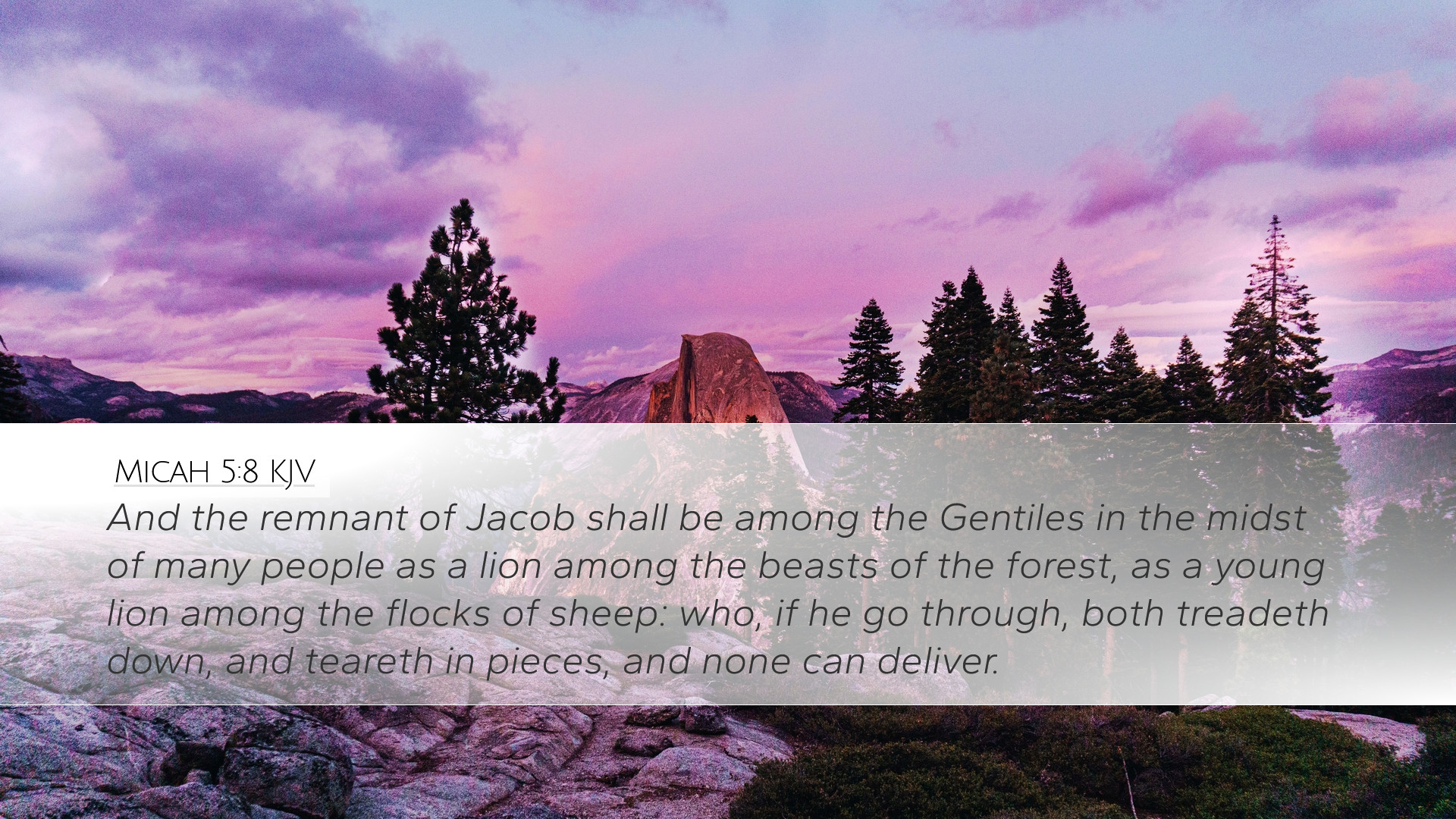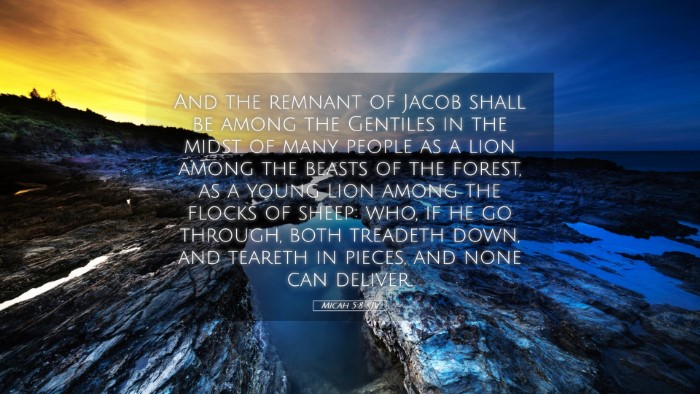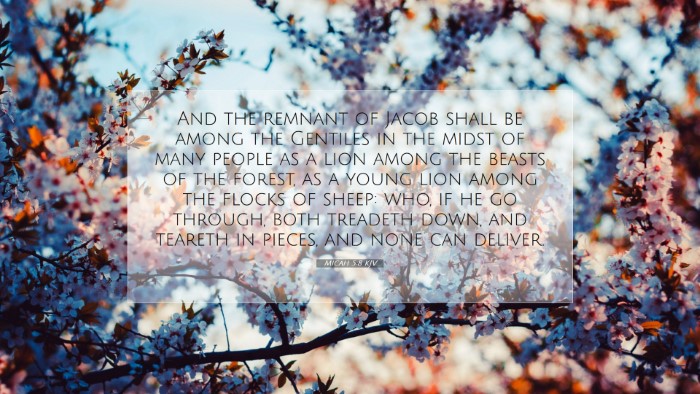Old Testament
Genesis Exodus Leviticus Numbers Deuteronomy Joshua Judges Ruth 1 Samuel 2 Samuel 1 Kings 2 Kings 1 Chronicles 2 Chronicles Ezra Nehemiah Esther Job Psalms Proverbs Ecclesiastes Song of Solomon Isaiah Jeremiah Lamentations Ezekiel Daniel Hosea Joel Amos Obadiah Jonah Micah Nahum Habakkuk Zephaniah Haggai Zechariah MalachiMicah 5:8
Micah 5:8 KJV
And the remnant of Jacob shall be among the Gentiles in the midst of many people as a lion among the beasts of the forest, as a young lion among the flocks of sheep: who, if he go through, both treadeth down, and teareth in pieces, and none can deliver.
Micah 5:8 Bible Commentary
Commentary on Micah 5:8
Bible Verse: Micah 5:8 (ESV) - "And the remnant of Jacob shall be among the nations, in the midst of many peoples, like a lion among the beasts of the forest, like a young lion among flocks of sheep."
Overview
The prophetic vision in Micah 5:8 offers a glimpse into the future state of the remnant of Jacob, emphasizing their strength and distinctiveness among the nations. As the context of the verse unfolds, it richly layers the imagery of power and presence that resonates deeply with theological implications for understanding God's people in relation to the world.
Insights from Public Domain Commentaries
Matthew Henry's Commentary
Matthew Henry outlines that this verse portrays the remnant of Jacob as a purification and preservation of God's chosen people. He suggests that although they may be scattered among the nations, they possess a unique identity and strength reflective of their divine calling.
- Remnant theme: Henry emphasizes that the term "remnant" signifies a select group of faithful people who are set apart by God, indicating a return to true worship after a time of disobedience.
- Imagery of the lion: The metaphor of the lion encapsulates attributes of courage, ferocity, and leadership, suggesting that the remnant will exert influence and demonstrate significant power among Gentile nations.
Albert Barnes' Notes on the Bible
Albert Barnes expounds on the juxtaposition of the remnant of Jacob with both their current plight and their eventual triumph. His commentary focuses on the inherent strength and supremacy that the remnant will exhibit in the face of adversities.
- Striking contrast: Barnes elucidates the transition from weakness to strength, noting that though the Israelites may seem insignificant among the nations, their essential nature as God's people equips them for eventual victory.
- Presence among nations: The passage implies that the remnant will not merely coexist but thrive like the lion—acknowledged and feared—indicating a powerful presence that draws recognition and respect.
Adam Clarke's Commentary
Adam Clarke provides a rich theological reflection on how this verse situates the remnant of Jacob within God's providential care and plan. His interpretation highlights the sovereignty of God in preserving a faithful people.
- Theological significance: Clarke points out that the remnant serves as a testament to God's faithfulness and mercy in preserving a group who remain true to Him amidst a sea of unbelief and idolatry.
- Symbol of a lion: He interprets the lion's imagery as indicative not only of strength and power but also of a divine appointment, as God champions the cause of the righteous, ensuring that they overpower those who oppose them.
Theological Implications
Micah 5:8 enriches our understanding of God’s redemptive purpose, serving several theological implications:
- God’s Sovereignty: The preservation of the remnant reflects the unwavering sovereignty of God in history. No matter the challenges faced by His people, He remains in control, ensuring their survival and ultimate triumph.
- Identity and Mission: The remnant is called to be a distinct and powerful presence in the world, akin to lions among the sheep, signifying that believers today carry a divine mission that transcends cultural and political boundaries.
- Hope and Restoration: This verse is a profound declaration of hope. For pastors and theologians, proclaiming the faithfulness of God who restores and empowers His people amidst challenges is central to the biblical narrative.
Conclusion
In summary, Micah 5:8 encapsulates a powerful message about identity, strength, and divine safeguarding. Amidst its historical and cultural context, it presents enduring truths that resonate with believers today. As church leaders, students, and scholars engage with this text, it invites reflection on God's character and His call to be a courageous, distinctive presence in a world in need of hope and truth.


